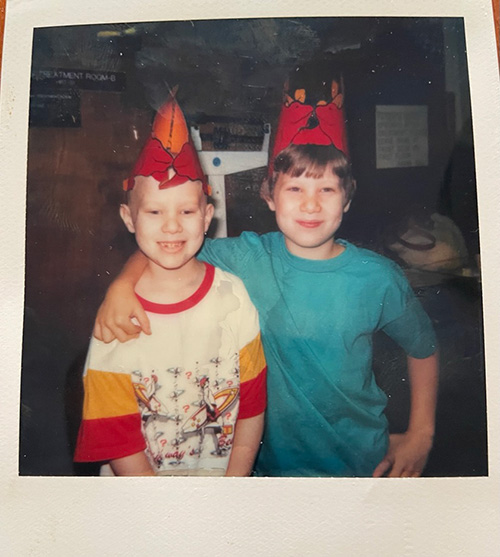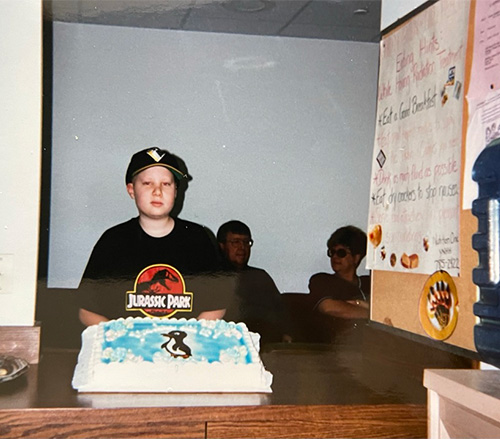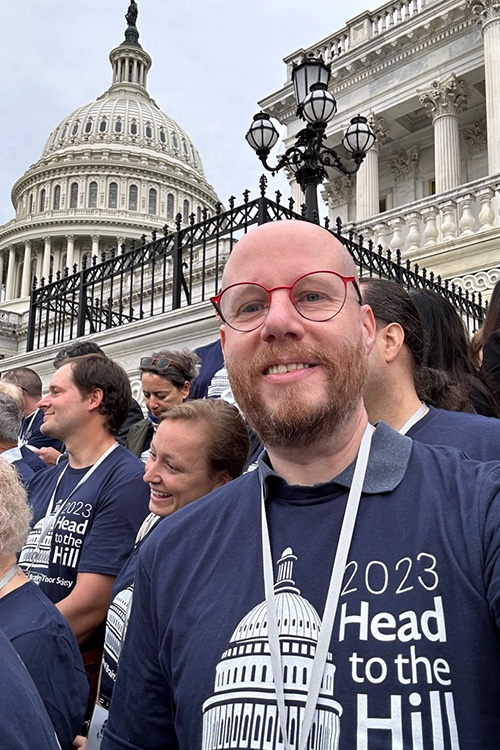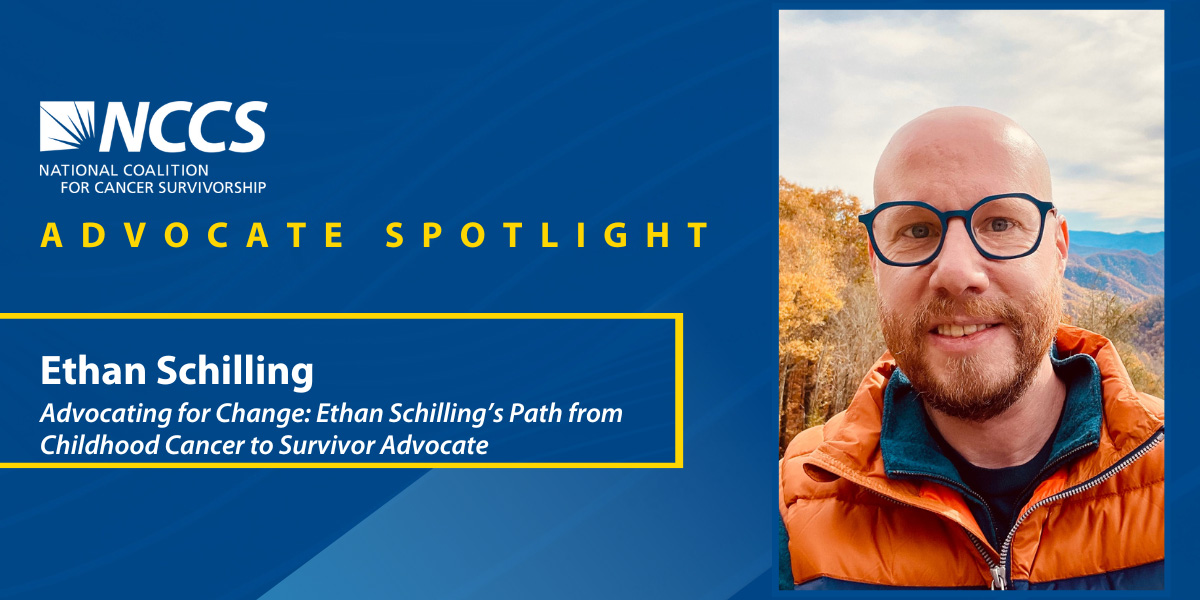Advocating for Change: Ethan Schilling’s Path from Childhood Cancer to Survivor Advocate

Ethan (R) with his twin brother Derek (L).
A childhood cancer survivor himself, Ethan Schilling’s work as a psychologist is motivated by his commitment to meeting the psychological needs of children, adolescents, and families whose lives have been impacted by cancer and other chronic health conditions.
Ethan’s personal experience with cancer started when his twin brother Derek was diagnosed at age 7 with Pineal Germinoma brain cancer. Five years later, at age 12, Ethan faced a similar diagnosis. “I experienced headaches and balance issues, just like my brother had before his diagnosis,” he explains. “My parents knew something was wrong and sought medical help.”
After an initial misdiagnosis by a family physician, Ethan underwent further testing with the neurosurgeon who had treated his brother. “That’s when I received my own diagnosis,” Ethan says. “It was overwhelming at first, especially as a child trying to grasp the concept of cancer.”
Ethan was admitted to Yale-New Haven Children’s Hospital for treatment which included brain surgery, chemotherapy, and radiation. He recalls meeting one nurse who was particularly good at helping him calm down and get prepared for the hard work of the treatment he was facing. “The support from my medical team and family was crucial during this challenging time,” Ethan emphasizes. “I’m grateful for the care I received.”

Ethan, during his own cancer treatment.
After treatment, Ethan wanted to move on from his cancer experience. “I wanted to leave the past in the past and move on with my life. But as I got older, I came to realize the importance of engaging in advocacy alongside others with similar stories and experiences.” This realization was brought to the forefront in 2021 when Ethan and his husband Jay mourned the sudden loss of Jay’s brother, Mark, to glioblastoma.
Ethan found many opportunities to share his experiences within brain tumor advocacy organizations, like the National Brain Tumor Society, Children’s Brain Tumor Foundation, and the Raymond A. Wood Foundation, for which he currently serves on the board of directors. He also participated in the Scientist <-> Survivor program through the American Association for Cancer Research (AACR), which he learned of through his involvement with NCCS. “I recently attended AACR’s annual meeting where I learned more about how cancer survivors and advocates can partner better with researchers in the cancer space to affect change in our community,” he said. Through NCCS’s Cancer Policy and Advocacy Team (CPAT) program, Ethan was also connected with the National Cancer Institute’s Office of Cancer Survivorship where he contributed to a recent effort developing national cancer survivorship guidelines.
 As a CPAT member, Ethan found a platform to advocate for survivor needs in policy discussions. “Through NCCS, I learned that there is strength in numbers in making a difference in the cancer survivorship community. There are a lot of us out there who are passionate about survivorship, and we can accomplish a lot by working together,” he shared.
As a CPAT member, Ethan found a platform to advocate for survivor needs in policy discussions. “Through NCCS, I learned that there is strength in numbers in making a difference in the cancer survivorship community. There are a lot of us out there who are passionate about survivorship, and we can accomplish a lot by working together,” he shared.
Ethan knows that uniting survivor’s voices and experiences can drive meaningful change. “It is important to ensure that the survivor perspective is heard in advocacy and policy work,” he said. “We are the experts on the supports our community needs and we want to make sure we have a seat at the table when important decisions are being made that affect us.”
For survivors just getting started in their advocacy, Ethan offers practical advice. “Start by getting effective at conveying your own personal survivorship story to others in a meaningful way,” he advises. “Start small: volunteer at an event or contact your congressional representatives. You never know when that first step may lead to something greater.”
New to patient advocacy? Or looking to sharpen your advocacy skills? Learn more and Join the NCCS Cancer Policy & Advocacy Team »
Connect with Ethan online:
Instagram: @drschillingtoyou
LinkedIn: Ethan Schilling




